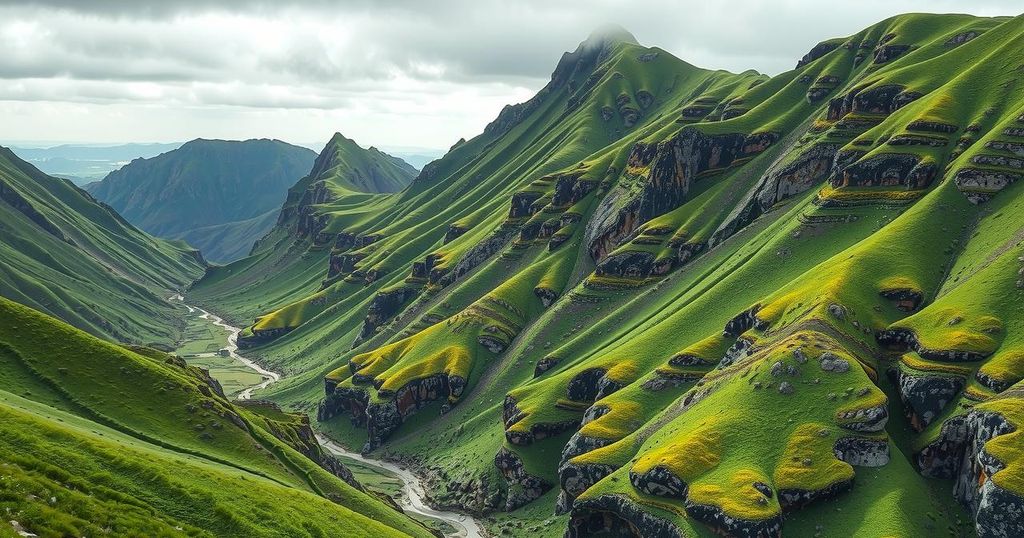Trump Seeks Rare Earth Minerals from the DRC Amid Ongoing Conflict

President Donald Trump is seeking a potential deal with the Democratic Republic of the Congo (DRC) for rare earth minerals after negotiations with Ukraine stalled. The DRC faces conflict from the M23 rebel group, which has captured key regions and is critical to accessing the country’s valuable mineral resources. China’s dominance in cobalt extraction presents a challenge to U.S. interests in the region, complicating the geopolitical landscape.
United States President Donald Trump has turned his attention to the Democratic Republic of the Congo (DRC) in pursuit of rare earth minerals, following stalled negotiations with Ukraine. The DRC is currently embroiled in conflict, as the M23 rebel group has significantly advanced in recent months, capturing key locations such as Goma and Bukavu. This region is reported to be rich in essential minerals for modern technology, including coltan and cobalt, both critical for electric vehicle batteries and various electronic devices.
Yinka Adegoke, Africa editor of Semafor, emphasized the economic motivations driving the conflict in the DRC, stating the region possesses substantial reserves of critical minerals. The M23, predominantly composed of the Tutsi ethnic group, has historical ties to Rwanda, which has faced allegations of supporting the rebels. Amid this turmoil, DRC President Felix Tshisekedi and Rwandan President Paul Kagame have called for a ceasefire, although the response from M23 remains uncertain.
The DRC’s mineral wealth is pivotal for advanced technologies, with U.S. interests focused on establishing a transactional relationship in exchange for potential support. A State Department spokesperson noted that the region holds a considerable share of essential minerals. Mr. Adegoke remarked on the transactional nature of U.S. diplomacy, reflecting on the complexities of past negotiations with Ukraine and the benefits that the U.S. seeks from involvement in Congo.
China currently dominates the cobalt extraction market in the DRC, controlling approximately 80 percent of the operations. With decades of investment into Africa, China has expanded its influence significantly, posing a notable challenge to U.S. interests in the region. A peace deal brokered by the U.S. could potentially grant access to Congo’s valuable resources, although the M23 aims to maintain control over certain mined areas.
Allegations of Rwandan support for M23 complicate the situation further, as the DRC government attributes significant military successes to such backing. Observers, including Stephanie Wolters from the South African Institute of International Affairs, assert that without Rwandan military assistance, M23 would likely not have achieved its current standing. Recent confrontations have resulted in significant losses for the Congolese military and mass displacement of civilians, illustrating the severe humanitarian impact of the conflict.
Efforts for peacekeeping have seen contributions from numerous nations, with MONUSCO being the leading mission. However, recent decisions, including the withdrawal of South African forces amidst rising casualties, have reduced opposition to M23’s territorial ambitions. The precarious situation raises concerns that the quest for the DRC’s abundant mineral wealth may lead to further conflict rather than prosperity, underscoring the region’s paradox of being rich in resources yet plagued by instability.
In summary, President Trump’s focus on the DRC for rare earth minerals highlights a complex interplay of economic and geopolitical interests in a nation fraught with conflict. The DRC’s vast mineral resources are vital for technology, yet their exploitation poses serious ethical questions amid ongoing violence and humanitarian crises. As the U.S. navigates diplomatic relationships, the implications of these decisions could reshape the landscape of international alliances and the future of the DRC.
Original Source: www.abc.net.au








